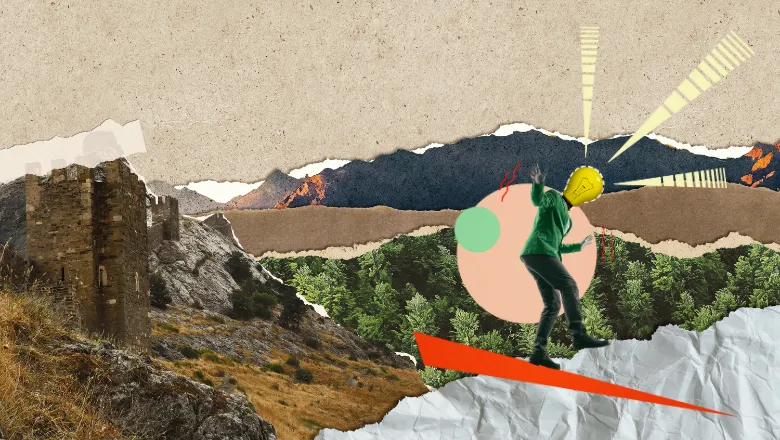From learning for unsustainability to unlearning for sustainability? Stuckness, disavowal and the importance of making space for ambivalence

In this lecture, Dr Beth Christie and Dr Callum McGregor critically consider how the Scottish policy of Learning for Sustainability (LfS) might be implicated in disavowal, understood not only as an individual phenomenon, but as a social structure.
Firstly, they draw on their previous research studies to set the context of LfS policy within Scottish education, before exploring the ways in which ‘stuckness’ and disavowal are emerging as key lines of enquiry within their ongoing empirical and theoretical research. They reflect on and explore the visceral feelings of ‘stuckness’ experienced by teachers, and tentatively connect this to the construction of LfS as an idealised ‘good object’ that acts as a receptacle for wider societal anxieties about the climate and ecological crises, saddling teachers with seemingly impossible demands.
A key dimension of their argument concerns the way in which disavowal, as a social structure, revolves around the fetishisation of knowledge itself (Zupančič, 2024). In this sense, they explore the idea that LfS can interpreted as an avatar for ‘sustainability knowledge’, which allows education to carry on as if nothing has to change, for example, through periodical calls to ‘renew our commitment.’ Thus, we learn for unsustainability when education policy becomes entangled in ‘cultures of implicatory disavowal’ (Weintrobe, 2019) that prevent us from addressing unresolved feelings of loss and ambivalence that would arguably have to be reckoned with, were we to truly confront what we think has to change, and locate ourselves within that process of change.
By contrast, unlearning for sustainability would require us to make time and space for teachers to ‘sit with’ ambivalent thoughts and feelings about LfS, and ‘work through’ the reality of loss by positioning themselves in imagined processes of social and institutional change. This is important because, to quote one young climate activist we interviewed, “it becomes preachy doesn’t it, if they’re not truly authentic, if they haven’t addressed their own feelings around the subject.”
They understand this as a process of unlearning because disavowal is actively learned from the fantasies, myths, rationalisations and other shared defences that circulate both within our culture (Weintrobe, 2019), and manifest in educational policies and institutions through forms of oracular power that actively demarcate the boundaries between ignorance and legitimate knowledge (McGoey, 2019).
References
McGoey, L. (2019) The Unknowers: How Strategic Ignorance Rules the World. London: Zed Books.
Weintrobe, S. (2019) ‘The climate crisis’, In Y. Stavrakakis (Ed.) Routledge Handbook of Psychoanalytic Political Theory. London: Routledge, pp. 417-428.
Zupančič, A. (2024) Disavowal. Cambridge: Polity.
Speakers
Dr Beth Christie, Senior Lecturer, Moray House School of Education and Sport, University of Edinburgh
Dr Callum McGregor, Senior Lecturer, Moray House School of Education and Sport, University of Edinburgh.
Search for another event
